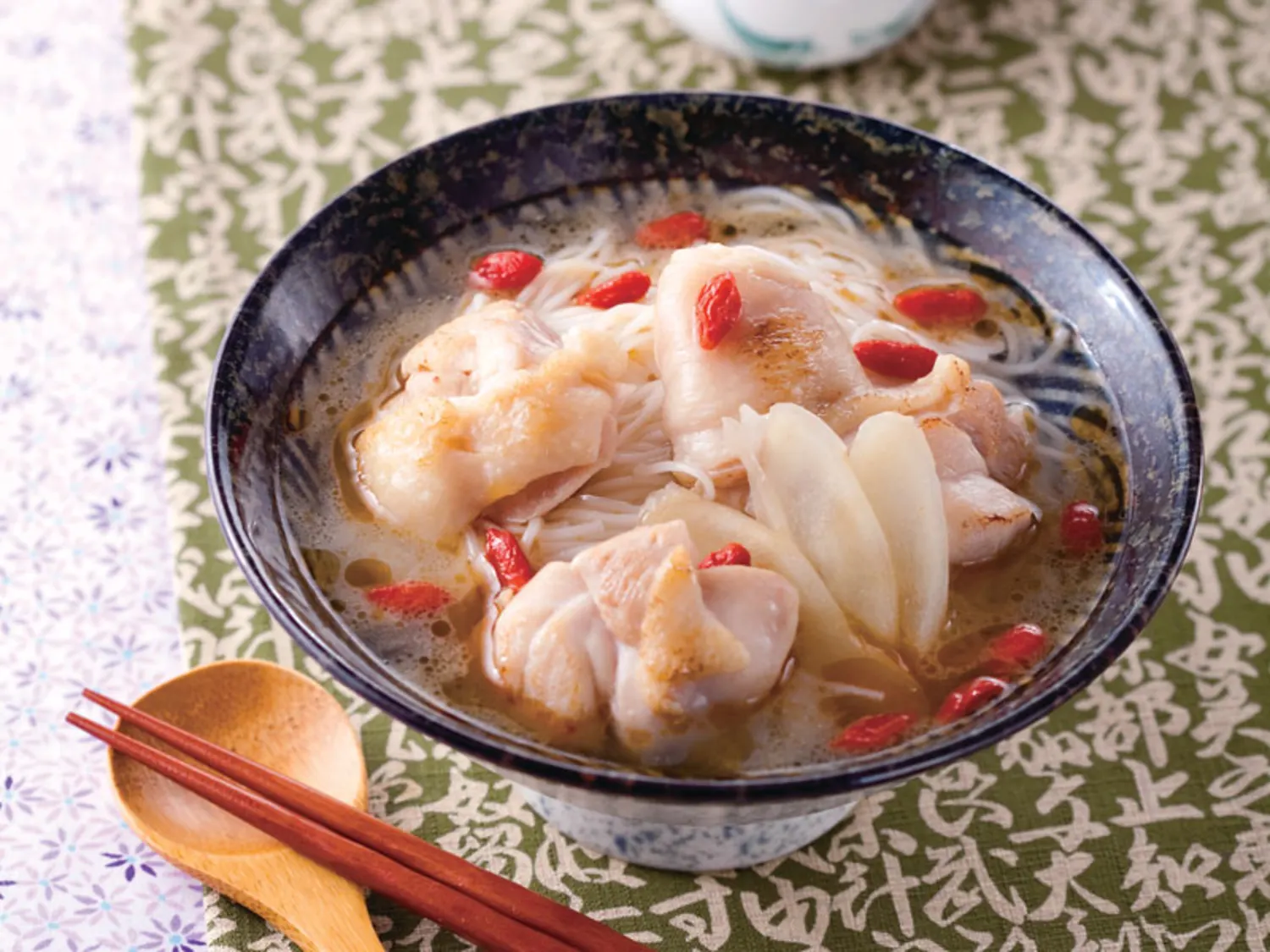
Rice Wine Noodles (米酒麵線)
A warming soup made with thin wheat noodles in a broth flavored with rice wine, typically served with kidney and liver.
Ingredients
- •Rice wine
- •Thin wheat noodles
- •Pork kidney
- •Pork liver
- •Ginger
- •Sesame oil
- •Black pepper
Instructions
Prep Ingredients
Clean and slice organ meats
Make Broth
Simmer rice wine with ginger
Cook Noodles
Cook noodles until tender
Combine
Add meats and serve hot
Rice Wine Noodles, known as "米酒麵線" (Mi Jiu Mian Xian) in Mandarin, is a hearty and nourishing Taiwanese soup dish that combines thin wheat noodles, called misua or mian xian, with a fragrant broth made from Taiwanese rice wine. What makes this dish particularly unique is its traditional inclusion of organ meats, typically pork kidney and liver, though modern variations may offer alternatives for those who prefer conventional cuts of meat.
The dish has its roots in traditional Chinese medicine concepts, where rice wine is believed to provide warming properties that help improve blood circulation. It became a popular breakfast and late-night supper option in Taiwan, especially during cooler weather, and is often served at small local eateries and night markets.
The preparation of Rice Wine Noodles begins with carefully cleaning and slicing the organ meats, which requires skill to remove any unwanted parts and achieve the right texture. The broth is made by simmering rice wine with ginger, which helps balance the strong flavors of the organ meats and adds a warming quality to the soup. The thin wheat noodles are cooked separately until they reach the perfect tender consistency, then combined with the broth and meats. The dish is typically finished with a drizzle of sesame oil and a generous sprinkle of black pepper.
While the traditional version features organ meats, many modern establishments offer variations with regular pork, chicken, or seafood to cater to different preferences. Some vendors may also add vegetables like mushrooms or leafy greens to create a more balanced meal. The level of rice wine can be adjusted to taste, though it's important to note that the alcohol content largely cooks off during preparation.
In Taiwan, Rice Wine Noodles is particularly popular during breakfast hours and late at night, especially after a long evening out. It's commonly found in traditional markets, small family-run shops, and some night markets. The dish is typically served piping hot in a bowl, often with additional condiments like white pepper, black vinegar, or chili sauce available for customers to adjust the flavor to their liking.
From a nutritional perspective, Rice Wine Noodles can be quite nourishing. Organ meats, while not everyone's preference, are rich in iron, vitamin B12, and other essential nutrients. The ginger and rice wine are believed to aid digestion and improve circulation according to traditional Chinese medicine. However, those with alcohol sensitivities should be aware that while most alcohol cooks off, traces may remain. The dish is also relatively high in sodium, so individuals watching their salt intake should consume in moderation. Those with gluten sensitivities should note that the wheat noodles used in this dish contain gluten.
